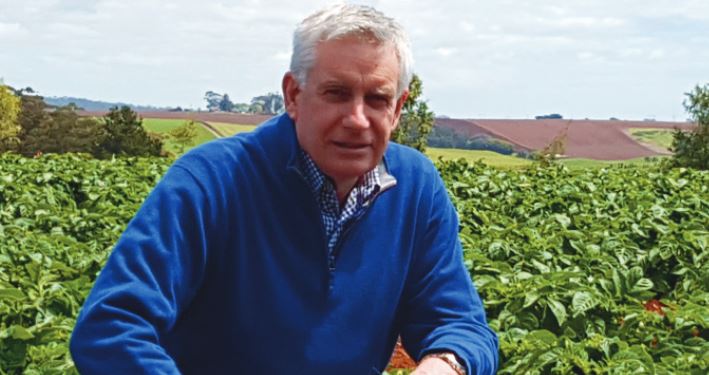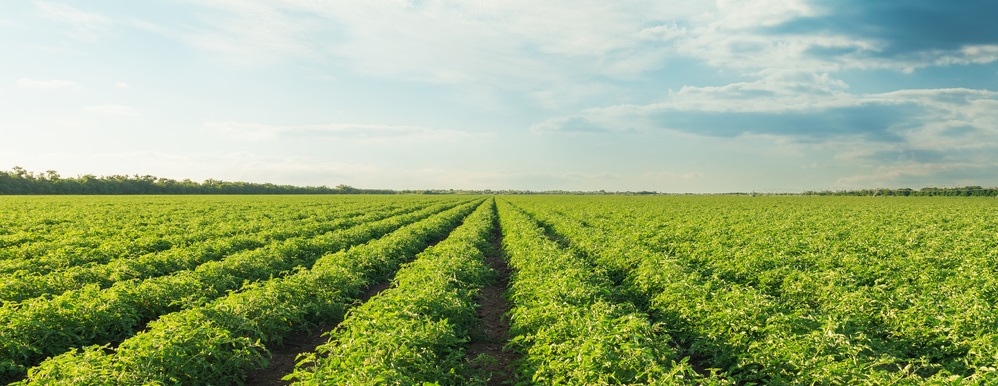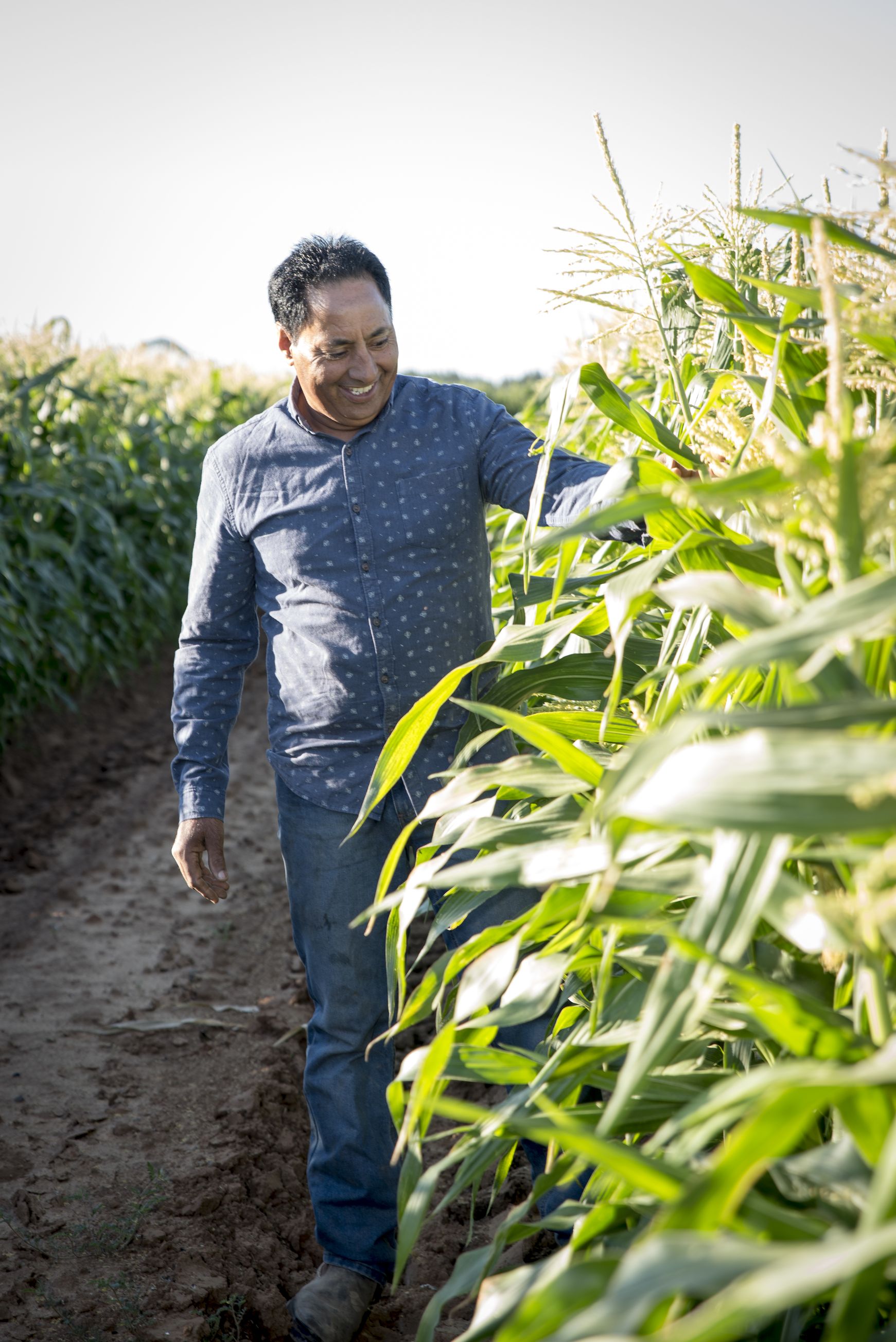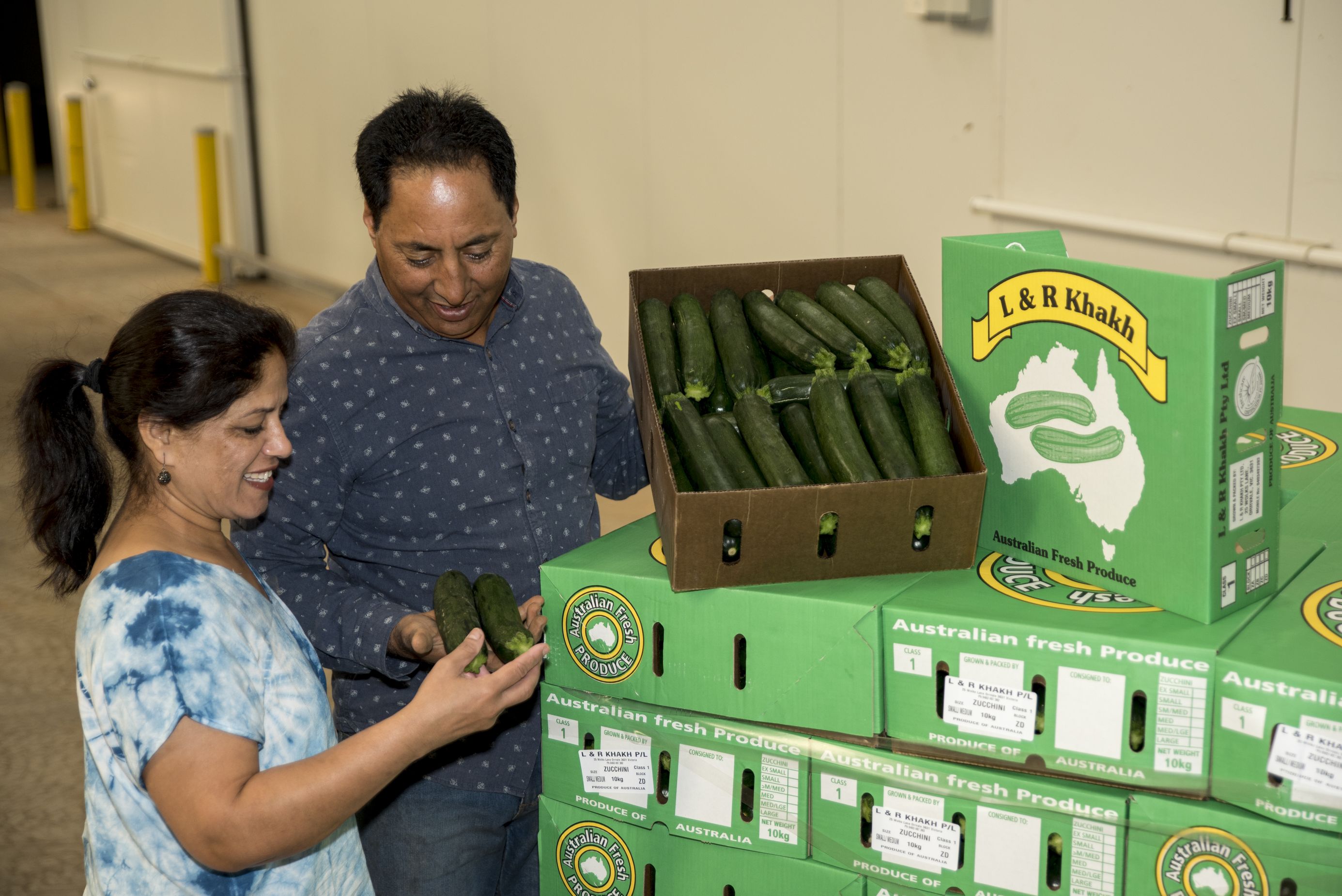
International collaboration to combat TPP continues to pay dividends
16 January 2018
EnviroVeg Pilot Program – funded positions available
19 January 2018Lucky Khakh arrived in Australia from India 24 years ago. After spending five years driving taxis in Melbourne, Lucky left the city to work as an orchardist in northern Victoria. He then began producing vegetables and hasn’t looked back.
Fast facts
Name: Lucky Khakh
Location: Shepparton, VIC
Works: L and R Khakh Pty Ltd
Grows: Broccoli, cauliflower, sweetcorn, zucchini
Located almost 200 kilometres north of Melbourne in the heart of the Goulburn Valley, the Victorian town of Shepparton is known for its production of various fruits including apples, pears and stone fruits such as peaches, apricots and plums.
However, due to a long drought in the early-to-mid 2000s and other issues affecting the region – including the threat of the closure of processing facility SPC Ardmona – many growers decided to move away from the orchards and into the veggie patch.
One of these growers was Lucky Khakh, a former Melbourne taxi driver. Lucky and his family arrived in Australia from Punjab, India in 1994 and spent a number of years in the city before deciding to move to the Goulburn Valley. Lucky initially grew apples and pears before going back to his roots; in India, he and his family grew vegetables in their home village.
Today, Lucky runs a 90-acre vegetable growing enterprise with assistance from his wife Rupinder. Their business, L and R Khakh Pty Ltd is in production throughout the year, and crops include zucchini, broccoli, sweetcorn and cauliflower. Lucky also leases another 60 acres of land to other growers in the area.


A difficult journey
It wasn’t easy for Lucky and his family when they first arrived in Shepparton. Starting a new life as an orchardist with two children under six years of age, Lucky admits that he struggled.
“When you’re starting from scratch one thing you don’t have is money in your hands. You have to give it to the packing sheds and pay for the labour. It was very hard for three to four years – we struggled at that time. We worked very hard in those days.”
The challenges continued when Lucky decided to move into vegetable production, which was considered a niche in the region.
“Because no one here had implemented what we wanted to use, it was hard to find the seed here for whatever we needed. When we went to the shops to ask someone something, they didn’t know what I needed. Nobody could give me any information into how we could do it (start growing vegetables).”
Fortunately Lucky’s resilience paid off and he is considered to be the first grower in the Greater Shepparton region to become a mid-to-large scale vegetable producer.
"I love the new technology. If the next generation stays on the farm, there have to be computerised things."
Weathering the storm
The weather presents many challenges to farmers and growers. When Lucky first moved to Shepparton, many parts of Victoria were in the midst of drought. In February 2009, Black Saturday occurred – searing temperatures of 45+ degrees Celsius swept across the state and sparked devastating bushfires. Lucky estimates 20 acres of his land was burnt that day.
At the time of writing this article, the state was waiting for another unprecedented weather event: a massive storm was bearing down on Victoria with flooding expected across the state, including Shepparton and the Goulburn Valley region.
Lucky was preparing for the storm to hit when Vegetables Australia spoke to him in early December 2017.
“We can’t stop the rain,” he says.
“I just clean up the ground, prepare the crops and get it into the right place and that’s it – we then just have to wait.”
R&D focus
Lucky has embraced the technology available to the vegetable industry, and spoke about the importance of keeping up with the times to entice the next generation onto the farm.
“I love the new technology. If the next generation stays on the farm, there have to be computerised things,” he says.
Lucky also has a close working relationship with agronomists in the region, which helps to reduce the incidence of pest and disease in his crops.
But there is one element missing – a testing laboratory in the town.
“We don’t have a lab here in Shepparton. We need a good lab here to check the soil tests and all the diseases within this area,” Lucky explains.
“We send it away to Brisbane or Melbourne and they take weeks to come back, and by that time the crop is finished. We need a lab here so we can do that straightaway: get to whatever is damaging the crop and let me know within a day what we can do to spray and control it. There needs to be one good lab here – it’s very, very important because there are a lot of vegetable growers, and even orchardists, spending a lot of money in this area.”


Future hopes
After building his vegetable growing operation from scratch, and expanding to 150 acres of crops on a 2-3 year rotation, Lucky is proud of what he has been able to achieve.
“I love to be a farmer. A lot of people are doing it here and others are coming to buy a farm and do the same thing. Shepparton was mostly fruit country and now it’s starting to become vegetable country,” he says.
“We spend a lot of money on seed etc., but we’re able to keep going all year now. I’m happy to have changed from being an orchardist to a vegetable grower.”
In the meantime, Lucky is keeping his eye out for further opportunities in the Goulburn Valley region. His children are at university in Melbourne and it is not known if they’ll return to work on the farm or build their own business in the agriculture sector.
“We’ll see what happens in another five years when they need a job,” Lucky says.
This grower profile first appeared in the leading magazine for the Australian vegetable industry, Vegetables Australia. If you’d like to subscribe to receive a new edition of Vegetables Australia in your mailbox every two months, use our online subscription form!
Photography credit: Rhonda Doyle

